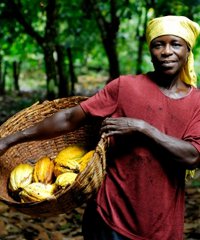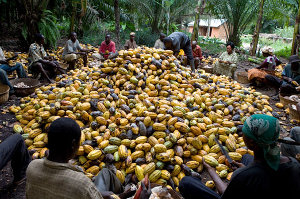President John Dramani Mahama has delivered his maiden State of the
Nation’s address to the Sixth Parliament of the Fourth Republic.
The address is in line with Article 67 of the Constitution, which
mandates the President, at the beginning of each session of Parliament,
deliver a message on State of the Nation. Below is what the President
said on the Country’s Agricultural Development.
“Mr. Speaker, all of our accelerated development efforts have been
geared towards giving special advantage to accelerated agricultural and
aquaculture development through Modernization.
The process of modernization, involving the use of improved seed
varieties, greater access to tractor services and training of peasant
and small holder farmers on productivity enhancements, has resulted in
dramatic increases in maize, rice and cassava production in the last
four years. >>> more











